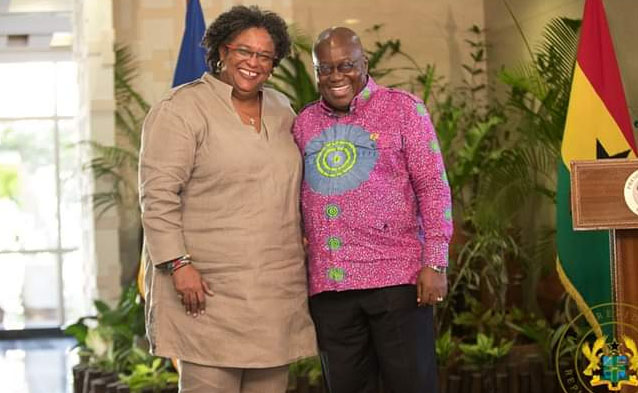President Nana Akufo-Addo with Prime Minister of Barbados, Mia Amor Mottley
The Prime Minister (PM) of Barbados, Mia Amor Mottley, has told African nations to build strong economic ties with black nations outside Africa and people of African descent for their mutual benefit and eliminate the mentality that white mind is superior to the black mind.
She said it was the most insidious insult for black people to see themselves as inferior to white people, stressing that it was humiliating for black persons to bleach their skin.
She, therefore, entreated all blacks to be proud of themselves, including their skin, and stop bleaching since it is an insult to the black race.
“All black people should have collective voice to defend the cause of black people,” she said, stressing that black people have the numbers to change their situation.
The Barbadian PM, who was addressing Parliament on Friday as part of her three-day official visit to the country, said that it was time Caribbean countries which are populated by slaves from Africa built greater relationships with African nations.
She said Barbados has a lot to offer Ghana while it also stands to benefit from such economic co-operation with Ghana.
She noted that in the area of renewable energy and the financial and transportation sectors, Ghana could learn a lot from Barbados. She said her country could also effectively collaborate with Ghana to push an agenda for greater global action on climate change.
“There should be constant interaction between us, the black people, and our respective nations and the building of trust,” she stressed.
She told the parliamentarians how their British colonial masters shipped slaves from Africa, particularly from Ghana, to work for them from 1641, adding that about 52,468 Ghanaian slaves were shipped to the Barbados but 44,906 made the journey with the rest dying on the way.
She said it was the Ghanaian slaves led by one Kofi who led the emancipation and liberation of the blacks in Barbados that eventually led to their freedom and independence from the British people.
By Thomas Fosu Jnr


